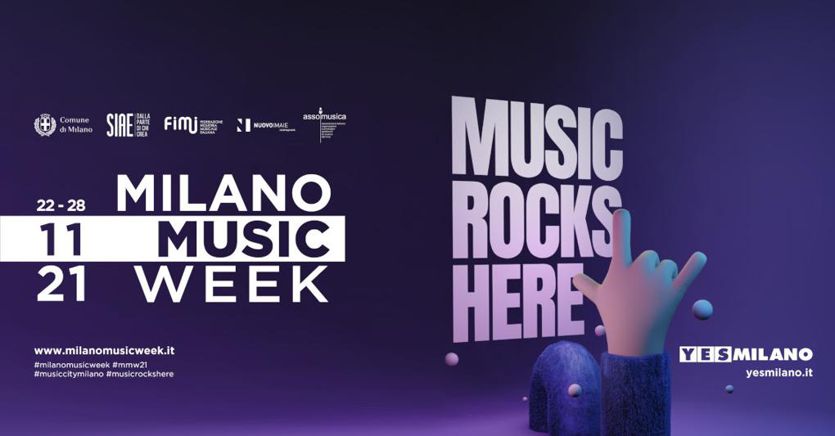The restart beyond Covid is already underway, but the conditions for relaunching the music sector are still partial and insufficient. Milan Music Week, a week of concerts, meetings and webinars designed above all to bring live music back to physical places, will propose an important in-depth study. Scheduled from 22 to 28 November and carried out in a widespread way through over 40 city locations, this fifth edition will focus on the state of the Italian music industry in a close comparison with international realities and the digital universe, going to aggregate a multiplicity of institutional and private players.
The “moment” of Italian music
The promotion and enhancement of the music industry therefore passes through a debate that involves wide-ranging issues: from copyright to the new law on entertainment, from the role of streaming to gender equality, from the relevance of record companies to the theme of artists’ revenues. The copyright and distribution of the sound product will be the focus of numerous professional panels, since they directly influence the development of the entire sector. “The evolution that artists have had in recent years, especially the Italian ones, is unparalleled”, explains Enzo Mazza, managing director of Fimi. «Digital has eliminated barriers, democratized the scene and today there are many more young and emerging artists entering the charts, winning gold records and playing abroad. The example of the Maneskins represents the evidence of this enormous potential, given that after the victory of Eurovision they immediately entered the top ten of 38 countries ».
Reflection on the digital turning point
Revenues from digital audiences have been at the center of disputes between artists and online platforms for years, but for Mazza, progress is also being made on this front. «In general, digital receipts are increasing and in the last three years the payment of royalties by record companies has increased by 17 percent. Then there are artists who receive them directly, using aggregators that allow you not to go through the labels and this is also an interesting topic to pay attention to ». The Milan Music Week therefore provides a typical music conference organization, with over 100 thematic events of international interest and evening showcases dedicated to new artists presented by agencies and labels.
Towards a “sustainable” business model
The live shows will be broadcast simultaneously in six European cities, linked through a streaming platform. “Our intent is to experiment with a formula that limits the environmental impact of tours,” says Dino Lupelli, general manager of the Music Innovation Hub, a consultancy firm for the musical professions and cultural institutions. The Milanese hub is also this year the main content partner of the week dedicated to music and with the Linecheck format it places particular emphasis on two themes: innovation and sustainability. “The pandemic has taught us the importance of the unity of the supply chain with respect to historical problems that already existed before Covid,” continues Lupelli. «It would be important to become radicals, follow the Norwegian model and provide for a non-derogable minimum for the payment of artists. In Italy, on the other hand, we use the French model, with a regulation that is applied in fits and starts, while it is essential to guarantee the professionalism of those who work and create clear distinctions with respect to those who orbit in amateur music ».
All the untapped potential of a sector
But what then is the future of music to focus on? What is the still untapped potential in this era of decisive change? On the one hand, as Mazza recalls, the necessary transformation of record labels into music entertainment companies, capable of investing in research and development and following their artists through any channel currently available digitally. On the other, Lupelli insists, covering a new sector for Italy, that of music tech and metadata processing, thus operating on internationalization and supporting innovative startups. In the meantime, Italy is finally discovering the complexity of a supply chain such as that of concerts, which in 2019 was worth more than 500 million, all pending a framework law on entertainment that defines new and meticulous rules to protect an entire category of workers.
